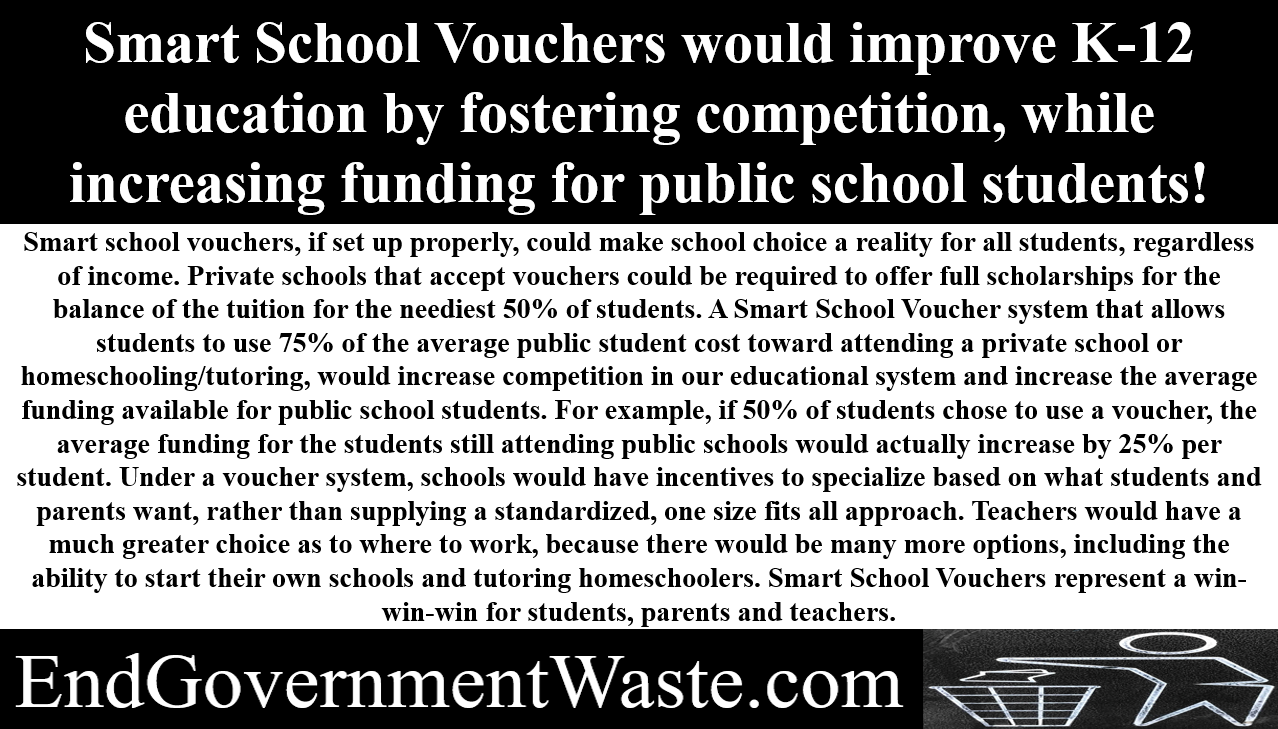School Choice Poll:
For more information on School Choice, please read below.


Smart School Vouchers would improve K-12 education by fostering competition, while increasing funding for public school students!
Smart School Vouchers would improve K-12 education by fostering competition, while increasing funding for public school students.
Many big city public schools are very well funded but produce poor results because they have limited competition. For example, Baltimore City School District receives $17,000 per student, the 2nd highest amount in the entire country, yet has low test scores and low graduation rates.
A Smart School Voucher system that allows students to use 75% of the average public student cost toward attending a private school or homeschooling, would increase competition in our educational system and increase the average funding available for public school students. For example, if 50% of students chose to use a voucher, the average funding for the students still attending public schools would actually increase by 25% per student.
Competition requires schools to become more efficient and innovative in order to provide a better educational experience for students. Under a voucher system, schools would have incentives to specialize based on what students and parents want, rather than supplying a standardized, one size fits all approach. Areas of differentiation might include STEM curriculum, increased special needs capabilities, or smaller classroom size.
Private schools would need to provide a better education than public schools, or they would go out of business. The increased competition would no doubt require public schools to improve as well, or they would lose students. In addition, private schools that received public funding could be required to offer scholarships to a percentage of students, ensuring that financially-needy students have the opportunity to go to the best schools, subsidized by more affluent families.
Teachers would have a much greater choice as to where to work, because there would be many more options, including the ability to start their own schools and tutoring homeschoolers.
Parents and students would have more options as well, including public school, more private school and homeschooling options. Parents would have a greater ability to homeschool their children, an option that is currently really only available to more affluent parents. Homeschooling parents could have greater educational resources and pay tutors to supplement homeschooling if they needed assistance with certain subjects.
As some schools became the obvious success stories, other schools would likely follow. Reducing government regulations and focusing on the ends (excellent education for a reasonable cost) rather than the means (bureaucratic regulations), would result in better education, especially for financial-needy students.
Smart School Vouchers represent a win-win-win for students, parents and teachers. The big loser, which ultimately represents a win, would be significantly reducing bureaucratic administrative waste.
